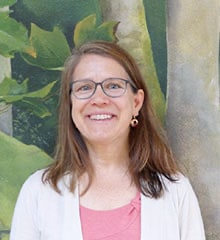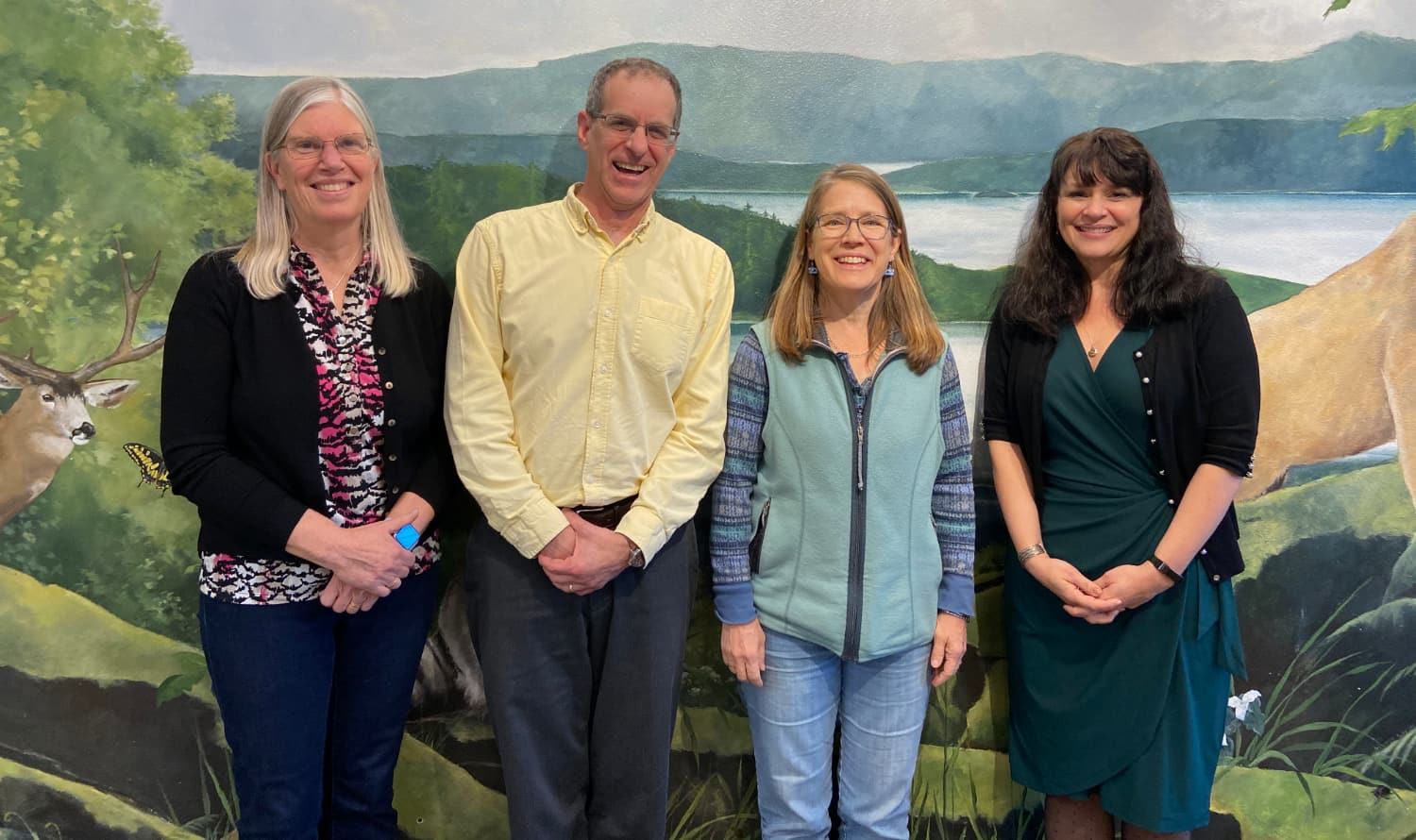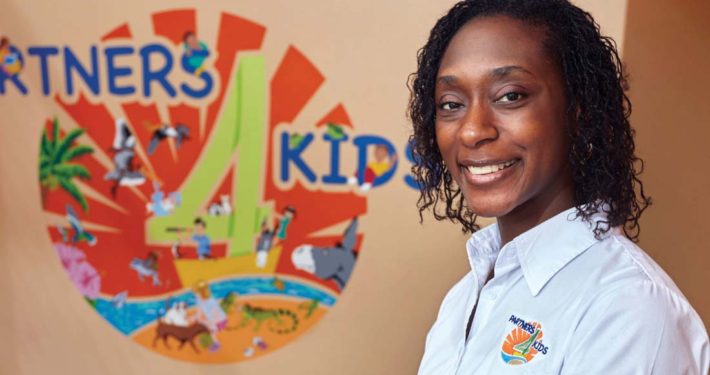Getting Resourceful, Staying Close: Small Town Healthcare for a Growing Community
In November 2019, The Independent Pediatrician visited Skagit Pediatrics in Mount Vernon, Washington. The managing pediatricians shared the story of the practice’s history, growth, and how despite consistent change, their independent culture has thrived after nearly 40 years.
Washington’s Skagit County is shaped like a watering can. Straddled by Vancouver, B.C. to the north and Seattle to the south, it’s known for its fertile Skagit river valley, ideal for growing strawberries and tulips, the latter of which has a dedicated festival every spring. But at Skagit Pediatrics in Mount Vernon, the county seat, the providers and staff have a different crop in mind. Serving a diverse rural population with varying needs, Skagit Pediatrics’ success since its inception in 1981 has been its drive to innovate in order to offer kids and families the resources they need to grow up happy and healthy.
Pioneering A Beginning
Dr. Frances Chalmers and Dr. Nancy Robblee each attended medical school on the East Coast, but met in residency in Seattle in the late 1970s. Between seeing patients in clinic, the new pediatricians planned to start a practice together. Together they took a two-day class in practice management put on by the Washington State Medical Association: “[We] came out with six spiral ring notebooks that were 50 pages each,” says Dr. Chalmers. The class had laid out for them how to set up a new pediatric practice — all on paper, of course. Equipped with their new knowledge, they began their practice in a two-bedroom house next to Skagit Valley Hospital, known for being the launching pad for doctors fresh from residency
Both founding physicians were drawn to start an independent practice in order to pave their own way. Dr. Chalmers, who has recently retired, reflected, “We were lucky enough to have the mentorship of a few other residents who were a couple years ahead of us and had stepped out and opened a practice. We’ve been able to do things without waiting for the years of red tape to go through administration and legal before we can take each step. And we’ve made some mistakes that way. But mostly it’s worked out and it’s been successful.”
Nearly 40 years after Skagit Pediatrics’ founding in 1981, the staff has grown significantly, but at first, their growth was almost accidental. Drs. Chalmers and Robblee had clear goals for their practice and their future: they wanted to work reasonable hours in order to spend time at home, and that included starting their own respective families within a year or two. They knew it would be extremely difficult to run a two-provider practice if they did this at once, especially if their maternity leaves overlapped — so, in what would become Skagit Pediatrics’ practical, pioneering fashion, they flipped a coin to see who would have the first baby (Dr. Robblee won). While Dr. Nancy was out, the locum physician became their third partner. Sometimes more formally, sometimes not, they grew their practice like this, evolving into what is now a staff of six pediatricians, four ARNPs, one physician’s assistant, and a licensed social worker.
As the community grew, the practice grew with them. Moving from the house by the hospital, they built their first clinic in 1988. Over the next fourteen years, they filled it. By word of mouth and sterling reputation, soon the practice’s patient roster was so large that the physicians used a trailer behind the building to see up to three more patients at a time, washing with hand sanitizer, trying to keep warm in winter, and making the best of what they had. They moved into a larger clinic in 2002 and have been there since.
Even now, the practice’s current clinic is nearly at capacity — but like before, explained medical director Dr. Rick Levine, they’re making do with what they have, combining offices, converting storage to clinical space, and reorganizing communal areas.
“Our community has grown and, like many rural communities, this growth has come with challenges. We have seen more families struggle to make ends meet. And, as families are more stressed, we have seen more need for social support and access to behavioral health.”Dr. Rick Levine
Innovation in Motion
The practice’s administrator, Angelique Kissas, explains the mission of Skagit Pediatrics has always been to “serve our community.” In the past few years, as the founding and more senior partners have retired, the remaining partners have strived to maintain their legacy of offering compassionate expert pediatric care in their own community.
Despite the proximity to Seattle (about an hour’s drive away), Skagit County is considered a rural one, and as such the pediatricians are keenly aware of the socio-economic factors related to their community’s healthcare needs. The practice serves a population that is substantially dependent on Medicaid and social support. The county had 17,163 children enrolled in Apple Health, Washington state’s Medicaid program in early 20191. The county’s Latino population has also grown, and nearly 20% of the county speak a language other than English at home.2
Kissas explains, “As we have identified the needs of families in our county, there has always been a willingness to take a risk and try something new to address those needs.”
Dr. Levine relates, “Our community has grown and, like many rural communities, this growth has come with challenges. We have seen more families struggle to make ends meet. And, as families are more stressed, we have seen more need for social support and access to behavioral health.” As a group they have sought creative ways to improve care and help families navigate the healthcare system.
Among their efforts to meet these needs, they have established a Communications Nurse position. Along with the Triage Nurse, the Communications Nurse helps the practice manage patients with ADHD and behavioral difficulties, ensures appropriate follow up after ER visits, and manages registries of patients to ensure timely follow up for well care visits.
The practice has also established a program of integrated behavioral health. They began by developing better two-way communication with community mental health clinic partners, and this led to incorporating a licensed social worker as a member of the practice team. “We are now able to provide collaborative care services within our clinic and help families access services both within our practice and to better link them to local community services,” explains Dr. Andrea Lowe, a managing partner.
Already a Patient Centered Medical Home practice, Skagit Peds has begun the process of providing more robust screening and support for social determinants of health as a “Healthy Steps” Clinic with the financial support of a Healthy Tomorrows grant.
Kissas also detailed how the practice has participated in several studies via the University of Washington and Seattle Children’s. Doing so has given them the opportunity to be a part of academic research. Dr. Chalmers elaborates: “From early on, we participated in learning collaboratives in Seattle, either Children’s or University of Washington or some other group, where we were exposed to new ways of practicing medicine and they introduced us to the importance of population health.”
“I think that kept us engaged in staying at the front of the curve in terms of health-care processes. At the same time, we have become a reliable practice for many academic clinicians to work with.” These study protocols have included research into mental health issues such as ADHD and adolescent depression, as well as asthma management, and studies on vaccines and vaccine hesitancy.”
A Medical Home for Independent Pediatricians
When asked about the area, the providers — all transplants — have found Skagit County a great place to raise their families, and they enjoy being a part of the community.. “We moved here because we wanted to live and work in a community like this.” relates Dr. Lowe. “As a pediatrician, you can remain anonymous in a place like Seattle, but here you kind of get to be a recognizable face.”
Even as the population has grown over the years, the “one degree of separation” in the small town seems to mean that everyone knows who they are. It also means their reputation as caring physicians has deep roots.
“I would say if you asked somebody in Skagit County, “I’ve just moved to the area. Where should I take my kids to see the doctor?’, more often than not, people would say, Skagit Pediatrics.’ That’s a great feeling,” says Dr. Chalmers, smiling. “There’s a nice reputation attached to this name.”
“We moved here because we wanted to live and work in a community like this. As a pediatrician, you can remain anonymous in a place like Seattle, but here you kind of get to be a recognizable face.“Dr. Andrea Lowe
Deep Roots, Still Growing
The reputation of caring physicians is well deserved. As Skagit Pediatrics has evolved over the years, the pediatricians have continued to innovate to get their patients the healthcare they need. But they don’t limit themselves to healthcare. Many of the clinicians donate their time and experience to further children’s causes important to them. As a group, it’s easy to see how deeply the roots of Skagit Pediatrics go in the community: they have ties to elementary and high schools, to the local children’s museum, to CPS and the foster care system, with the parks and trails department. Many of the providers and staff have become involved in multiple community organizations — for example:
Dr. Chalmers and Holly Henson, ARNP have had an active role at the Brigid Collins Family Support Center, including its Children’s Advocacy Center, helping to provide resources for families to end child abuse as well as to provide care for children who have suffered abuse.
Dr. Lowe has been a representative to the Washington State-wide Patient Centered Medical Home project, leading the charge to make Skagit Pediatrics one of the very first practices in the state of Washington to form a Parent Advisory Committee to help inform the practice’s care, with the input of parents, staff, and providers. According to the clinicians, it’s been a hugely valuable resource for feedback and for new ideas in serving the community’s needs.
Dr. Levine has been involved with the local School Medical Autism Review Team (SMART) to better coordinate the screening, evaluation and management of Autism Spectrum Disorder. He also works with local school nurses to maintain bidirectional support between the medical community and the school districts.
Emily Bianconi, FNP, represents the clinic on the board of directors for the county’s First 1000 days Project. Dr. Lund represents the clinic on the local Head Start Advisory Board. The clinic helped develop a program with local farmer’s markets to educate and provide fresh produce to families during the summer.
Over the last few summers, the clinic has collaborated with local farmer’s markets to develop a program to educate and provide fresh produce to low income families called Skagit PICKS.
Ongoing Care During COVID-19
The practice has found their skills, resourcefulness, and their close-knit community crucial as they have navigated their practice’s response to the COVID-19 pandemic. Their response, especially with the proximity to Seattle, where some of the first outbreaks appeared in January, has been agile and reflected their patients’ needs and their staff’s safety. Dr. Rick Levine reflected on the changes that the COVID-19 pandemic has brought to Skagit Pediatrics in recent months:
“Due to the COVID-19 crisis, like most primary care pediatric clinics, we have had to make significant changes in the way we have practiced in the past three months. In response to the crisis, we have had to substantially redesign almost everything about the way we provide care.”
The practice reports they have changed their usual workflows and protocols to keep patients safe and continue to provide much-needed care. As part of their redesign, they reconfigured clinic space and patient flow patterns, adopted telemedicine for well child care, acute care, and chronic care management visits for physical and behavioral health, and incorporated the use and preservation of personal protective equipment (PPE) to protect physicians and staff.
They have also, like many practices, turned to digital means to provide the safe, caring environment they want to offer to their patients. In addition to telemedicine, they built and rebuilt systems for patient scheduling, expanding their use of their patient portal to communicate with families, coordinated the use of registries to reach out to patients, and have used social media to stay in touch with their community.
All of these changes were made within three months, with the collaboration with the Washington State Department of Health and the practice’s local public health department. They have also collaborated with the Washington state chapter of the AAP and the Seattle Children’s Care Network.
Dr. Levine continued, “These changes have had to happen at a rate that was almost unimaginable just three months ago. As we have navigated these challenging times, we have been grateful for the extraordinary commitment, creativity, flexibility and grace of our providers and staff.”
A Bright Future
The clinicians have learned that “though on the surface our job is to take care of kids, it’s also our job to take care of families and our community. Nobody teaches you that in residency, you learn that as you go.” According to Dr. Levine, “As much fun as it is to watch kids mature and grow up, watching their parents turn into confident, comfortable parents — that’s pretty cool too.”
Despite the practice’s long years of hard work, the secret to Skagit’s success may be simply the joy of the work. When asked their favorite part about being pediatricians, the vote was unanimous among the providers and staff: “Getting to see the kids! When they’re excited to see you, when they request you specifically, and say things like: ‘Only Auntie Mona [nurse Ramona] can do my shots.’”
Buoyed by moments like these, the physicians continue to enjoy their work and improve their skills as caretakers of kids’ health. Now, they welcome the first of the cohort of children born to former patients — fondly known as their “grandchildren”.
The physicians and staff at Skagit Pediatrics are modest, and don’t claim to be doing anything remarkable. However, their tenacity in getting their patients the care they need, without requiring them to travel an hour or more away to Seattle to get it, is exactly that. Their methods are simple and economical, and they’re easily accessible to any pediatrician willing to get creative when their resources don’t meet their needs.
They participate in studies, which offer the practice newer technologies and practices and help Seattle hospitalists further pediatric research. They’re engaged and connected to their communities, participating in projects that circle back to helping their kids thrive in school, at home, and at play.
By using every resource available, by continuing to learn, by walking every path available to get accessible care their patients need, Skagit Pediatrics continues to enjoy the blooms of their labor in year after year of happy, healthy children.
Allie Squires is The Independent Pediatrician‘s editor and the marketing content writer for PCC. She holds a M.S. in Professional Writing from NYU, and BAs in Writing and Literature from SUNY Plattsburgh. When she’s not writing, she enjoys reading and exploring her adopted home state of Vermont.












